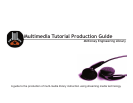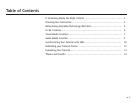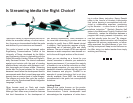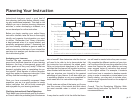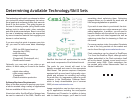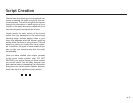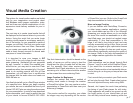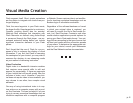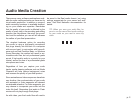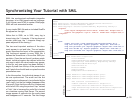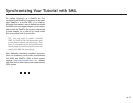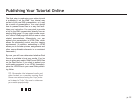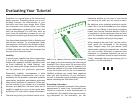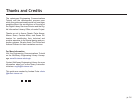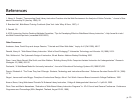
p. 8
p. 8 p. 9
Audio Media Creation
There are as many software combinations avail-
able for audio media production as there are for
visual media production. In addition, a range of
audio recording hardware is available depend-
ing on your needs and expertise. Remember
that the quality of your audio is affected by the
quality of every step in the recording and editing
process; the microphone, the mixer, the sound-
card and the software you use will all inuence
the caliber of your nal presentation.
The simplest hardware option for recording
your audio is using a high-quality microphone
that plugs directly into the back of a computer
with a sound card. In conjunction with free soft-
ware such as Real Producer Basic, or Windows
Sound Recorder, this method will result in ser-
viceable audio les, but not professional grade
sound. If high-quality audio is a priority for your
tutorial, secure the use of a professional-grade
microphone and mixer.
Regardless of how you capture your audio
tracks, media cleaning software such as Media
Cleaner® will help reduce background noise
and increase the quality of your nal product.
Since animation and video sequences have their
own timeline, the synchronization of your audio
with animated or video segments will demand
considerable attention. For video segments, you
may choose to incorporate your audio into the
video le itself. Remember that audio in Flash
movies will not play through Real player.
As with video, your nal audio les will need to
be saved in the Real media format (.rm) using
settings appropriate for your server and audi-
ence. See Real Networks documentation for
details.
TIP: When you save your audio les, be
sure to use the same Real media settings
for your audio as you used to save any
video.



